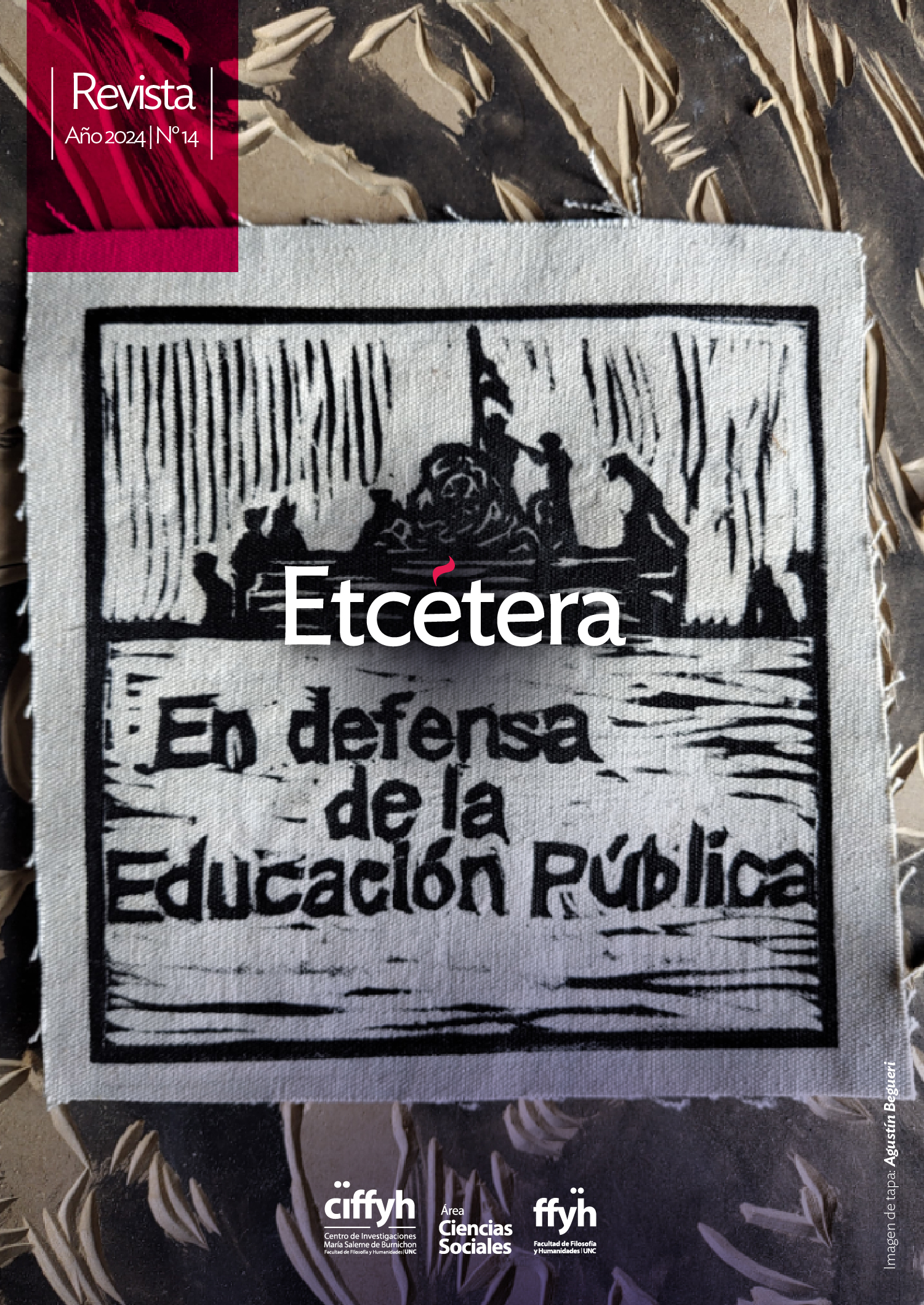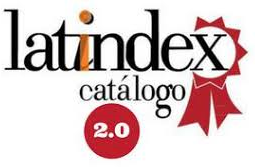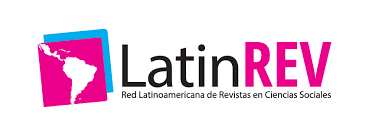Ethical reflections on ethnography: challenges and commitments with street workers in Chile
Keywords:
Ethics, Fieldwork, Street Workers, VulnerabilityAbstract
In this article, I propose a reflection on some ethical considerations in ethnographic fieldwork with vulnerable populations, particularly from the case of street workers in Chile. Beyond the "traditional" ethical concerns, I problematize the challenges that arise in fieldwork and the critical reflexivity of the ethnographer. To do so, I explore three crucial elements: positioning, engagement versus exploitation, and representation. First, I discuss the impact of researcher positioning on power dynamics and the interpretation of constructed data. Next, I examine the delicate balance between engagement with the community under study and the risk of exploitation towards it, highlighting the importance of reciprocity and shared responsibility. Finally, I analyze the importance of representing the voices of street workers in academic and public discourse, emphasizing the need to avoid stereotypes and promote a negotiated and liberating narrative. This paper contributes to enrich the debate on ethics in anthropological research, pointing out the importance of considering specific contexts and power relations in fieldwork with vulnerable populations.
Downloads
References
Barratt, M. J. y Maddox, A. (2016). Active engagement with stigmatised communities through digital ethnography. Qualitative Research, vol. 16, núm. 6, pp. 701-719. Londres: Sage. https://doi.org/10.1177/1468794116648766
Batalla, G. B. (1972). El concepto de indio en América: una categoría de la situación colonial. Anales de Antropología, vol. 9, pp. 105-124. México: Instituto de Investigaciones Antropológicas, UNAM. https://doi.org/10.22201/iia.24486221e.1972.0.23077
Bourgois, P. (2010 [2003]). En busca de respeto. Vendiendo crack en Harlem. Buenos Aires: Siglo XXI Editores.
Carvalho, J. J. (1991). Antropología. Saber académico y experiencia iniciática. Anuário Antropológico, vol. 15, núm. 1, pp. 91-107. Brasil: Programa de Pós-Graduação em Antropologia, UnB. https://periodicos.unb.br/index.php/anuarioantropologico/article/view/6443
Clifford, J. (1977). Spatial practices: fieldwork, travel, and the disciplining of anthropology. En: Gupta, A. y Ferguson, J. (eds.), Anthropological locations. Boundaries and grounds of a field science, 185-222. Estados Unidos: University of California Press.
Fasano, P. (2014). Enredada. Dilemas sobre el proceso etnográfico de investigación de un chisme y su publicación. En: Guber, R. (comp.), Prácticas etnográficas. Ejercicios de reflexividad de antropólogas de campo, pp. 159-171. Buenos Aires: Miño y Dávila.
Fasano, P. (2006). De boca en boca. El chisme en la trama social de la pobreza. Buenos Aires: Antropofagia.
Fonseca, C. (2010). Que ética? Que ciência? Que sociedade? En: Fleischer, S. y Schuch, P. (eds.), Ética e regulamentação na pesquisa antropológica, pp. 39-70. Brasilia: Letras Livres. https://doi.org/10.26512/9788598070247
Geertz, C. (2003 [1973]). La interpretación de las culturas. España: Gedisa.
Gergen, K. (2007). Construccionismo social. Aportes para el debate y la práctica (Estrada, A. y Diazgranados, S. [eds.]). Bogotá: Ediciones Uniandes. http://hdl.handle.net/1992/8050
Gmelch, S. (2010). Nomads in the city: studying Irish travellers. En: Gmelch, G., Kemper, R. y Zenner, W. (eds.), Urban life. Readings in anthropology of the city. Illinois: Waveland.
Guber, R. (2004 [1991]). El salvaje metropolitano. Reconstrucción del conocimiento social en el trabajo de campo. Buenos Aires: Paidós.
Katz, C. (1994). Playing the field: questions of fieldwork in Geography. The Professional Geographer, vol. 46, pp. 67-72. Londres: Taylor & Francis. https://doi.org/10.1111/j.0033-0124.1994.00067.x
Krause, J. (2021). The ethics of ethnographic methods in conflict zones. Journal of Peace Research, vol. 58, núm. 3, pp. 329-341. https://doi.org/10.1177/0022343320971021
Krotz, E. (1988). Viajeros y antropólogos: aspectos históricos y epistemológicos de la producción de conocimientos. Nueva Antropología, vol. 9, núm. 33, pp. 17-52. México: Asociación Nueva Antropología. https://www.redalyc.org/articulo.oa?id=15903303
Lévi-Strauss, C. (2021 [1955]). Tristes trópicos. Barcelona: Austral.
Llobera, J. R. (1986). Fieldwork in Southwestern Europe: anthropological panacea or epistemological straitjacket? Critique of Anthropology, vol. 6, núm. 2, pp. 25-33. Londres: Sage Journals. https://doi.org/10.1177/0308275X8600600203
Mackworth-Young, C. R. S.; Schneiders, M. L.; Wringe, A.; Simwinga, M. y Bond, V. (2019). Navigating ‘ethics in practice’: an ethnographic case study with young women living with HIV in Zambia. Global Public Health, vol. 14, núm. 12, pp. 1689-1702. Londres: Taylor & Francis. https://doi.org/10.1080/17441692.2019.1616799
Menih, H. (2013). Applying ethical principles in researching a vulnerable population: homeless women in Brisbane. Current Issues in Criminal Justice, vol. 25, núm. 1, pp. 527-539. Londres: Taylor & Francis. https://doi.org/10.1080/10345329.2013.12035979
Mitchell, D. (2003). The right to the city. Social justice and the fight for public space. Nueva York: Guilford Press.
Mullings, B. (1999). Insider or outsider, both or neither: some dilemmas of interviewing in a cross-cultural setting. Geoforum, vol. 30, núm. 4, pp. 337-350. Países Bajos: Elsevier https://doi.org/10.1016/S0016-7185(99)00025-1
Oliveira, R. C. (2010). A antropologia e seus compromissos ou responsabilidades éticas. En: Fleischer, S. y Schuch, P. (eds.), Ética e regulamentação na pesquisa antropológica, pp. 25-38. Brasilia: Letras Livres. https://doi.org/10.26512/9788598070247
Pacheco-Vega, R. y Parizeau, K. (2018). Doubly engaged ethnography: opportunities and challenges when working with vulnerable communities. International Journal of Qualitative Methods, vol. 17, núm. 1. Londres: Sage. https://doi.org/10.1177/1609406918790653
Renzetti, C. y Lee, R. (eds.). (1993). Researching sensitive topics. California: Sage.
Renoldi, B. (2015). Estados posibles: travesías, ilegalismos y controles en la Triple Frontera. Etnográfica, vol. 19, núm. 3, pp. 417-440. Portugal: Centro em Rede de Investigação em Antropologia. https://doi.org/10.4000/etnografica.4049
Restrepo, E. (2015). El proceso de investigación etnográfica. Consideraciones éticas. Etnografías Contemporáneas, vol. 1, núm. 1, pp. 162-179. Buenos Aires: IDAES, UNSAM. https://revistasacademicas.unsam.edu.ar/index.php/etnocontemp/article/view/395
Rockwell, E. (2009). La experiencia etnográfica. Historia y cultura en los procesos educativos. Buenos Aires: Paidós.
Skocpol, T. (2003). Doubly engaged social science: the promise of comparative historical analysis. En: Mahoney, J. y Rueschemeyer, D. (eds.), Comparative historical analysis in the social sciences, pp. 407-428. Reino Unido: Cambridge University Press.
Sy, A. (2016). Ética en el trabajo de campo: una reflexión desde la experiencia etnográfica. Revista de Antropología Experimental, núm. 16, pp. 353-363. España: Universidad de Jaén. https://doi.org/10.17561/rae.v0i16.2601
Wellman, D. (1994). Constituting ethnographic authority: the work process of field research, an ethnographic account. Cultural Studies, vol. 8, núm. 3, pp. 569-584. Londres: Taylor & Francis. https://doi.org/10.1080/09502389400490371
Winfield, T. P. (2022). Vulnerable research: competencies for trauma and justice-informed ethnography. Journal of Contemporary Ethnography, vol. 51, núm. 2, pp. 135-170. Londres: Sage. https://doi.org/10.1177/08912416211017254
Wolf, E. R. (1990). Distinguished lecture: facing power - old insights, new questions. American Anthropologist, vol. 92, núm. 3, pp. 586-596. Estados Unidos: American Anthropological Association. https://doi.org/10.1525/aa.1990.92.3.02a00020
Wolseth, J. (2019). Writing after betrayal: desahogarse, street outreach, and ethnography. Ethnography, vol. 20, núm. 3, pp. 342-358. https://doi.org/10.1177/1466138118803124
Wright, P. (2022). Reflexiones sobre ontología de la etnografía. RUNA. Archivo para las Ciencias del Hombre, vol. 43, núm. 3, pp. 403-430. Buenos Aires: Instituto de Ciencias Antropológicas, UBA. https://doi.org/10.34096/runa.v43i3.10294
Wright, P. (2008). Ser-en-el-sueño. Crónicas de historia y vida toba. Buenos Aires: Biblos.
Wright, P. (1994). Experiencia, intersubjetividad y existencia. Hacia una teoría-práctica de la Etnografía. Runa. Archivo para las Ciencias del Hombre, vol. 21, núm. 1, pp. 347-380. Buenos Aires: UBA. http://revistascientificas.filo.uba.ar/index.php/runa/article/view/1406
Yarbrough, D. (2023). The carceral production of transgender poverty: how racialized gender policing deprives transgender women of housing and safety. Punishment & Society, vol. 25, núm. 1, pp 141-161. Londres: Sage. https://doi.org/10.1177/14624745211017818
Yarbrough, D. (2020). “Nothing about us without us”: reading protests against oppressive knowledge production as guidelines for solidarity research. Journal of Contemporary Ethnography, vol. 49, núm. 1, pp. 58-85. Sage. https://doi.org/10.1177/0891241619857134
Downloads
Published
Issue
Section
License
Copyright (c) 2024 Etcétera. Revista del Área de Ciencias Sociales del CIFFyH

This work is licensed under a Creative Commons Attribution-NonCommercial-ShareAlike 4.0 International License.
Aquellos autores/as que tengan publicaciones con esta revista, aceptan los términos siguientes:
- Los autores/as conservarán sus derechos de autor y garantizarán a la revista el derecho de primera publicación de su obra, el cuál estará simultáneamente sujeto a la Licencia de reconocimiento de Creative Commons que permite compartir, copiar, distribuir, ejecutar y comunicar públicamente la obra, siempre que: 1) se cite la autoría y la fuente original de su publicación (revista, editorial y URL de la obra); 2) no se use para fines comerciales; 3) En caso que se transforme o genere una obra derivada a partir de esta obra, deberá compartise bajo las mismas condiciones establecidas por esta licencia.
- Los autores/as podrán adoptar otros acuerdos de licencia no exclusiva de distribución de la versión de la obra publicada (p. ej.: depositarla en un archivo telemático institucional o publicarla en un volumen monográfico) siempre que se indique la publicación inicial en esta revista.
- Se permite y recomienda a los autores/as difundir su obra a través de Internet (p. ej.: en archivos telemáticos institucionales o en su página web) luego de la publicacion del articulo, lo cual puede producir intercambios interesantes y aumentar las citas de la obra publicada. (Véase El efecto del acceso abierto).
- El titular del copyright es Etcétera. Revista del Área de Ciencias Sociales del CIFFyH.



















